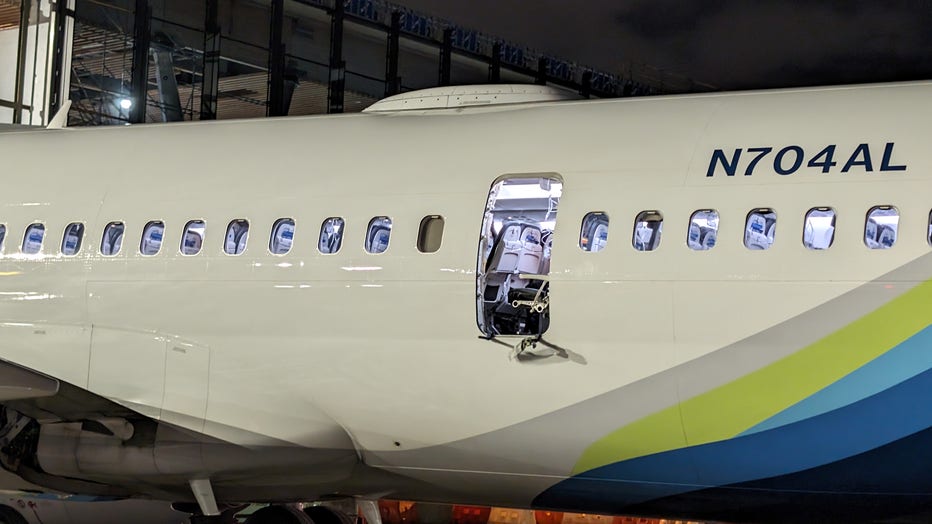Audit of Boeing finds dozens of issues
Audit of Boeing finds dozens of issues
A new report shows that Boeing failed 33 of 89 audits during and examination done by the Federal Aviation Administration. The six-week audit was conducted after a panel blew off an Alaska Airlines 737 Max Jet in January.
OAKLAND, Calif. - Since the Alaska Airlines door-plug blowout on January 5, Boeing's stock has nose-dived 26%; a $30 billion loss to shareholders and a cratering of its reputation.
If it was school, Boeing gets a D- and its supplier both got a grade of F.
The Federal Aviation Administration says Boeing failed 33 of 89 audits of its manufacturing and quality control processes. Its door plug supplier, the device that blew out on January 5, failed 7 of 13 audits.
"Well, that's a high failure rate," said international aviation attorney Mary Schiavo, who is a former inspector general of the U.S. Department of Transportation that oversees the FAA which, in turn, oversees Boeing and the airline industry.
"They also have to see that Boeing is doing all of the assembly in the exact and precise steps and procedure that are approved," said Schiavo.

Anonymous via FOX News
Documentation of how the door plug was installed is missing or never existed. "Requiring that documentation is part of the certification process," said Schiavo.
She also says that the FAA may soon find itself under investigation. "Did the FAA do everything it was supposed to do with overseeing Boeing? Has the government been robust enough in its oversight," said the aviation attorney.
A few years ago, in the wake of two 737 crashes that killed 346 people, to avoid criminal prosecution for those crashes. Boeing agreed not to mislead, deceive or defraud the FAA. That's why Boeing is under criminal investigation. Since the day of the Alaska Airlines door blowout, stock in Boeing, the nation's largest exporter, has dropped 26%.
Some experts say that intense competition, aircraft demand, shareholder expectations and far too much self-certification have led to this. "I think it's unacceptable," said frequent flyer Chris Meyers. "It's a huge loss of confidence," said his wife Amada.
They say its unsettling scary "You get on the plane thinking that steps have been taken and the maintenance is done and everybody is taking ownership of everybody's safety," said Meyers. "Then the event happened and was like, OK, that's one of those freak accidents. You isolate your mind thinking it won't happen again," said Meyers.
Whenever a deadly accident doesn't happen, the NTSC often says it was lucky. "We don't rely on luck. We rely on engineering, safety, planning, redundancy, inspections, oversight," said attorney Schiavo.
United and Southwest Airlines announced that they are cutting capacity and/or slowing hiring due to slower new plane deliveries.
Featured
Alaska Airline blowout: hanging question answered
Boeing's CEO acknowledged the company's mistake in the wake of the Alaska Airlines incident.


